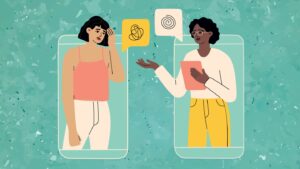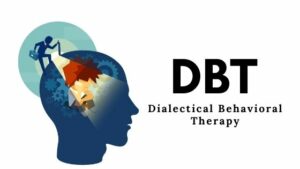Depression is a silent battle many individuals face, often in the shadows, sometimes even unbeknownst to their closest loved ones. For those affected, it feels like a relentless storm with no reprieve in sight. But there’s a silver lining: depression therapy. Through different therapeutic approaches, countless individuals have found solace, healing, and a renewed sense of purpose. This blog aims to shed light on the multifaceted world of depression therapy, empowering readers with knowledge and encouraging those in need to take the vital step toward recovery.
Contents
How Is Depression Therapy Helpful?
 Depression therapy is a vital tool for many individuals grappling with the challenges of depression. Its effectiveness stems from a combination of evidence-based approaches, personalized therapeutic relationships, and skill-building. Here’s how depression therapy can be immensely helpful:
Depression therapy is a vital tool for many individuals grappling with the challenges of depression. Its effectiveness stems from a combination of evidence-based approaches, personalized therapeutic relationships, and skill-building. Here’s how depression therapy can be immensely helpful:
1. Understanding the Condition
- Self-awareness: Therapy can help individuals recognize and understand their depressive symptoms, triggers, and patterns of thought and behavior.
- Educating: Therapists often provide valuable information about depression, helping patients realize that it is a treatable medical condition and not a sign of personal weakness.
2. Personalized Coping Strategies
- Behavioral Techniques: Therapy offers strategies like activity scheduling and behavioral activation to combat avoidance and inactivity, common manifestations of depression.
- Cognitive Techniques: Cognitive-behavioral therapy (CBT), a common form of therapy for depression, helps individuals identify and challenge negative thought patterns, replacing them with healthier beliefs and behaviors.
3. Emotional Processing and Release
- Safe Space: Therapy provides a confidential and non-judgmental environment for individuals to express their feelings, fears, and concerns.
- Grieving Losses: Many people with depression have experienced losses or traumas. Therapy can help in processing these experiences, allowing for grieving and healing.
4. Skill Building
- Problem-solving: Therapists often teach problem-solving skills to help patients address current challenges in their lives.
- Stress Reduction Techniques: Techniques such as deep breathing, progressive muscle relaxation, and meditation can be introduced and practiced.
5. Building Resilience
- Preventing Relapse: Therapy often includes discussions about recognizing early signs of a depressive episode and strategies to counteract them.
- Strengthening Coping Mechanisms: Through therapy, individuals learn to build a toolkit of coping skills and strategies that they can use when faced with stressful or triggering situations.
Overall, depression therapy is not just about alleviating symptoms but also about teaching individuals skills, strategies, and insights. That can often serve them for a lifetime.
What Are The Types Of Depression Therapy?
Depression therapy encompasses a wide array of evidence-based treatments tailored to meet individual needs. Here are some of the most common types of depression therapy:
Cognitive-behavioral therapy (CBT)
In CBT, individuals learn to identify and challenge maladaptive thought patterns, such as catastrophizing or overgeneralizing, and replace them with more balanced perspectives. Techniques used might include keeping thought records to capture and analyze negative thought patterns or employing behavioral activation to break cycles of inactivity that can exacerbate depressive symptoms.
Interpersonal Therapy (IPT)
IPT is rooted in the idea that interpersonal problems, such as conflicts with family or friends, can greatly contribute to depressive symptoms. Over the course of this therapy, the focus is on addressing these interpersonal issues. For instance, a person might explore unresolved grief over a lost loved one or navigate the challenges of a role transition, like becoming a parent or starting a new job. The goal is to improve communication and develop healthier ways to express emotions and needs.
Dialectical Behavior Therapy (DBT)
 Initially created for treating borderline personality disorder, DBT has been adapted for other conditions, including depression. Especially beneficial for those with severe depression intertwined with self-harming behaviors or suicidal tendencies, DBT combines traditional cognitive-behavioral techniques with concepts of mindfulness and acceptance. Skills are taught in four modules: mindfulness, distress tolerance, emotional regulation, and interpersonal effectiveness.
Initially created for treating borderline personality disorder, DBT has been adapted for other conditions, including depression. Especially beneficial for those with severe depression intertwined with self-harming behaviors or suicidal tendencies, DBT combines traditional cognitive-behavioral techniques with concepts of mindfulness and acceptance. Skills are taught in four modules: mindfulness, distress tolerance, emotional regulation, and interpersonal effectiveness.
Psychodynamic Therapy
Drawing from Freudian psychology, psychodynamic therapy dives deep into the unconscious mind. The aim is to unearth unresolved conflicts and traumas from the past, especially from early childhood, that continue to influence present behavior and emotions. Through the therapeutic relationship, patients gain insights into these unconscious patterns and work on resolving them. Techniques might involve exploring dreams, analyzing transference in the therapeutic relationship, or using free association to reveal hidden memories and feelings.
Problem-Solving Therapy (PST)
Depression can often arise or worsen due to unaddressed life challenges. PST is pragmatic; it helps patients identify problems, brainstorm potential solutions, evaluate those solutions, and then put a plan into action. It empowers individuals to take charge of their circumstances, fostering a sense of control and competence.
Humanistic or Existential Therapies
These therapies delve into the core of human existence, grappling with questions of meaning, free will, and the nature of the self. By exploring these fundamental concepts, individuals are encouraged to live more authentically, embrace their own values, and find purpose in life.
Medication and Advanced Treatments
While therapy offers a space for reflection, skill-building, and emotional processing, medication can be a valuable tool in the treatment arsenal, especially for those with moderate to severe depression. Antidepressants, like SSRIs or SNRIs, work by affecting neurotransmitter levels in the brain. For those with treatment-resistant depression, Electroconvulsive Therapy (ECT) and Repetitive Transcranial Magnetic Stimulation (rTMS) are options.
It’s essential to understand that no single therapy is a panacea. Often, a combination of therapies tailored to an individual’s unique needs and preferences yields the best results. Seeking advice from a mental health professional is crucial in determining the right therapeutic approach.
Which Therapy Is Considered The Best For Depression?
The concept of a singular “best” therapy for depression is challenging because individual responses to therapy can vary significantly based on various factors. This includes the severity of symptoms, underlying causes, personal preferences, and more. However, among the various therapeutic approaches, Cognitive-Behavioral Therapy (CBT) is often considered one of the most effective for treating depression, as evidenced by numerous research studies.
It focuses on the relationship between thoughts, feelings, and behaviors. It is a structured, short-term, goal-oriented therapy that helps individuals identify and challenge maladaptive thought patterns and behaviors that contribute to or exacerbate their depressive symptoms. The efficacy of CBT is well-supported by empirical evidence, with many studies demonstrating its effectiveness in reducing depressive symptoms. Furthermore, the skills acquired in CBT can serve as lifelong tools, equipping individuals to manage future episodes or challenges.
How To Get Online Depression Therapy In India?
 Getting online depression therapy in India has become more accessible than ever, thanks to the growth of digital platforms tailored to mental health. These platforms bridge the gap between therapists and those seeking help, ensuring that geographical boundaries don’t hinder access to quality care. Here’s a step-by-step guide to obtaining online depression therapy in India:
Getting online depression therapy in India has become more accessible than ever, thanks to the growth of digital platforms tailored to mental health. These platforms bridge the gap between therapists and those seeking help, ensuring that geographical boundaries don’t hinder access to quality care. Here’s a step-by-step guide to obtaining online depression therapy in India:
Research and Choose a Reputable Platform
There are several platforms available that cater specifically to the Indian audience. Some of the notable ones include:
- TherapyMantra: An online counseling platform that provides a wide range of mental health services tailored for Indian users.
- MantraCare: They offer a holistic approach, with therapy services complemented by psychiatric consultations and wellness tools.
- YourDOST: A comprehensive platform with a vast network of mental health professionals.
- Vandrevala Foundation: They provide helpline numbers and online chat services for mental health support.
Register on the Chosen Platform
Create an account on your preferred platform. Most platforms have a straightforward sign-up process requiring basic details and a valid email ID or phone number.
Browse Through Therapist Profiles
After registering, browse through therapist profiles to find a suitable match. Platforms often provide therapist qualifications, specializations, years of experience, and sometimes user reviews.
Schedule a Session
Once you’ve identified a therapist that aligns with your needs, you can book an appointment. Some platforms might offer initial consultation sessions for free or at a discounted rate.
Follow-Up
Based on the initial sessions, you and your therapist can decide on the frequency and mode of future sessions. Many platforms also offer reminders and scheduling tools to assist in this.
Remember, while online therapy provides convenience and accessibility, ensure the platform maintains strict confidentiality. And that the therapists are licensed and credentialed. If you’re ever in crisis or need immediate help, it’s crucial to contact local emergency services or helplines.
Conclusion
In the digitally connected era, seeking online depression therapy in India has become a seamless process. With platforms like TherapyMantra, MantraCare, and more, individuals can access qualified therapists from the comfort of their homes, bridging geographical and societal barriers. These platforms not only offer professional guidance but also ensure confidentiality and support.
As we prioritize mental well-being, it’s heartening to witness the rise of such accessible channels that make mental health care available at our fingertips, ensuring everyone gets the help they deserve. If you are experiencing depression-related issues, Online Depression Counseling at TherapyMantra can help: Book a trial Online therapy session.


